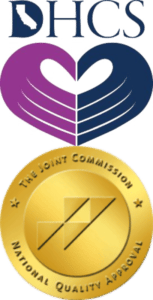IOP vs Php
What Is An IOP?
When tackling the colossal challenge that addiction presents, understanding the nuances of available treatment options becomes pivotal. But how do you differentiate between Intensive Outpatient Programs (IOP) and Partial Hospitalization Programs (PHP)? Let’s venture further into this arena.
Introduction to Addiction and Its Complexities
The Brain and Addiction
You’ve probably heard the phrase “addiction is a brain disease,” but what does it truly signify? Addiction profoundly alters the brain’s structure and function, making voluntary choice a blurred concept. It’s like having a software glitch in a perfectly good computer – sometimes, the system just malfunctions.
Emotional Impact of Addiction
Beyond the physiological impact, addiction seeps into one’s emotions and psyche. Feelings of guilt, despair, and isolation often accompany the addict, making recovery even more challenging.
Outpatient vs. Inpatient: A Quick Look
Significance of Environment in Treatment
Imagine trying to study in the middle of a bustling market versus a quiet library. Your environment plays a significant role in your ability to focus and heal. While outpatient care offers a familiar environment, inpatient care provides a distraction-free zone optimized for recovery.
Commitment and Duration Differences
While both treatment modalities are dedicated to recovery, they differ in intensity and time commitment. Think of it as comparing a regular gym routine (outpatient) versus a fitness boot camp (inpatient).
Intensive Outpatient Programs (IOP)
Understanding the Core of IOP
An IOP can be likened to attending a specialized school where you focus intensely on a particular subject – in this case, recovery. Unlike the traditional school, however, IOP is more flexible and revolves around your personal schedule.
Primary Features of IOP
- Scheduled Sessions: Typically, patients in an IOP attend sessions 3-5 days a week. The frequency can be compared to a part-time job, giving you ample time to integrate lessons learned into real-life scenarios.
- Diverse Therapies: Remember those diverse clubs in school, from drama to debate? IOPs are similar, offering a range of therapies from individual counseling, group therapy, to specialized sessions like art or music therapy.
- Duration: The program usually lasts from 2 to 6 months, depending on individual needs. Think of it as a semester in the school of recovery.
Role of Family in IOP
Family is like the anchor on a ship, offering stability and grounding. Recognizing this, many IOPs involve family therapy sessions, educating families on addiction and strategies to support their loved ones.
Aftercare Planning
Upon completing the primary phase of IOP, a comprehensive aftercare plan is often established. This plan is akin to a roadmap, detailing steps for continued recovery and preventing relapse.
Benefits of IOP
Beyond flexibility and affordability, IOPs offer:
- Real-world Application: Imagine learning a theory in class and immediately applying it in a lab. IOP gives you the chance to apply therapeutic learnings in real-life settings.
- Community Integration: Being a part of community activities while undergoing treatment reinforces social skills and a sense of belonging.
Partial Hospitalization Programs (PHP)
Understanding the Core of PHP
If IOP is like a specialized school, PHP is an intensive crash course. It’s designed for those who require a more structured environment than IOP but don’t need 24/7 supervision.
Primary Features of PHP
- Full Day Sessions: Patients typically engage in treatment for 5-6 hours a day, almost every day. This can be likened to a full-time job, but the focus is entirely on recovery.
- Multidisciplinary Approach: Think of it as attending a university with various faculties. PHPs integrate medical, therapeutic, and holistic approaches to treat addiction.
- Duration: PHPs generally last between 1 to 3 months. However, based on progress and needs, this period can be adjusted.
Medical Oversight in PHP
One key feature that distinguishes PHP from IOP is the availability of medical support. It’s like having a health guardian angel, where medical professionals regularly monitor and adjust treatment plans, ensuring optimal physical and mental health throughout the recovery process.
Group Dynamics in PHP
While both IOP and PHP offer group therapy, the intensity and frequency in PHP are higher. These sessions serve as a mirror, reflecting shared experiences, struggles, and triumphs, fostering a deep sense of camaraderie and mutual support.
Benefits of PHP
Beyond the structured and intensive treatment:
- Safe and Controlled Environment: PHP offers an environment free from triggers and potential relapse factors, much like a sanctuary for recovery.
- Holistic Healing: Many PHPs incorporate holistic treatments such as yoga, meditation, and even nutritional guidance, aiming for a comprehensive healing process.
Comparing IOP and PHP
Delving into the world of addiction recovery, the choice between IOP and PHP might appear like splitting hairs. However, understanding their intricacies and differences can empower you or a loved one to make an informed decision. Let’s lay them side by side, comparing their core attributes, advantages, and potential drawbacks.
Core Structure and Setting
- IOP: Imagine attending evening classes after work or school. IOPs are structured around the patient’s daily life, typically taking up to 3-5 hours a day for 3-5 days a week. This allows patients to maintain their routine responsibilities while seeking treatment.
- PHP: Envision a full-time college schedule where you’re engrossed in classes from morning to evening. PHPs are more intense, usually encompassing 5-6 hours of therapy, almost daily. This doesn’t leave much room for other responsibilities but provides a deep, immersive treatment environment.
Intensity of Treatment
- IOP: While intensive by name, IOPs provide a balance between therapy and real-world application. Like studying a subject and then having the freedom to do homework at your own pace.
- PHP: It’s the academic boot camp of addiction treatment. Everything, from therapy sessions, group activities to medical check-ins, is more concentrated, offering a rigorous recovery journey.
Medical Oversight
- IOP: Medical oversight in IOPs is generally limited. It’s akin to seeing your professor during scheduled office hours.
- PHP: With PHPs, there’s continuous medical supervision. Think of it as having unrestricted access to your professor, ensuring you’re on track with the syllabus and understanding all concepts.
Social Integration
- IOP: IOPs allow patients to continue interacting with their social circles and practicing coping skills in real-time, much like taking theory lessons and immediately applying them in practical scenarios.
- PHP: While PHPs are more insular, they offer a controlled social environment, similar to a residential college campus where interactions are primarily with peers going through similar experiences.
Duration and Commitment
- IOP: Generally extends for 2-6 months, but it’s spread out. Think of it as a part-time commitment that’s long-term.
- PHP: Lasting between 1-3 months, PHPs require a short-term but full-time commitment. It’s like dedicating your summer to an intensive course.
Flexibility vs. Structure
- IOP: Offers more flexibility, allowing adjustments based on personal and professional commitments. It’s like choosing elective subjects in college based on your interests and schedule.
- PHP: PHPs provide a strict, structured regimen. It’s similar to a mandatory course where the curriculum is fixed, and deviations are minimal.
Cost Implications
- IOP: Generally more affordable due to fewer operational costs and the absence of round-the-clock care. It’s the community college approach – quality education without the hefty price tag of a full-blown university.
- PHP: Typically costlier given the comprehensive services, facilities, and intensive care provided. It’s the Ivy League investment – pricier but all-encompassing.
Making the Right Choice: Personal Considerations
Assessing Individual Severity
While both programs are intensive, PHP might be more suited for those with severe addictions or those at higher risk of relapse. It’s about finding the right intensity for the challenge at hand.
Considering Personal Lifestyle and Responsibilities
Life doesn’t stop, and for some, taking time off for a PHP might not be feasible. In such cases, IOPs provide an excellent middle ground, ensuring treatment without putting life on hold.
Looking Ahead
Choosing between IOP and PHP is not about selecting the better option but rather the right one. With the tapestry of addiction being so intricate, personalized care becomes crucial. As you or your loved one ventures on this journey of recovery, remember: every step, no matter how small, is a leap towards a brighter, addiction-free tomorrow.
If you or a loved one are struggling with addiction and looking for a program to join on your journey to recovery, get in touch with No Matter What Recovery today.



